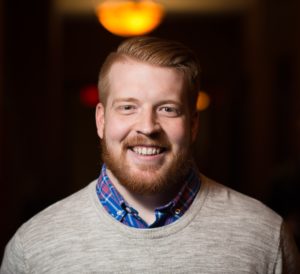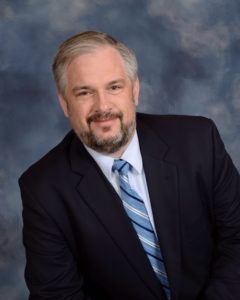
Ten Baptists: A Recap
Over the last several weeks, Steve Weaver has written about ten baptist figures that everyone should know. In these posts, Weaver recounts a brief biography of each figure, noting their conversions, confessions, and commitments. Additionally, Weaver provides resources for further study and insight. In this post, we simply wanted to give a brief recap from each of the ten baptists.
Orphaned as a child of only 9 years, Kiffin was apprenticed as a glover by the age of 13. When he was 17, Kiffin became converted through hearing the preaching of Puritan pastors John Davenport and John Goodwin. Remarkably, from these humble beginnings Kiffin would become one of the wealthiest men of his time, an adviser to kings, and a leader among the fledgling Particular Baptist movement.
In 1668 Keach made the move to London where the rest of his ministry would be carried out. On his way to London calamity struck as Keach was waylaid by robbers and all of his possessions were taken. Thus, Keach arrived in London penniless with only his family and the clothes on their backs. The Baptists of London welcomed Keach and his family by taking up collections for their welfare. Keach soon began to lead a congregation of General Baptists meeting in a house on Tooley Street in Southwark, London (south of the Thames River). This group of believers would eventually organize themselves into a church meeting in Horsley-down. This congregation would eventually become the New Park Street Church/Metropolitan Tabernacle later famously pastored by a certain Charles Haddon Spurgeon. Keach remained as pastor of this congregation until his death in 1704.
In April of 1793, Carey and his family set sail from England to Calcutta as the first missionaries of the fledgling missionary society. A gifted linguist, in his lifetime Carey was able to see his mission print and distribute the entire Bible or in parts in 44 different languages and dialects.
During Gill’s career he not only produced a commentary on every book of the Bible he also published in two volumes, A Body of Doctrinal Divinity, and later a companion volume titled A Body of Practical Divinity. These volumes are considered to be Gill’s magnum opus. John Rippon, Gill’s successor as pastor and first biographer, states that found in A Body of Doctrinal Divinity “is the Doctor’s whole creed. Here his very heart appears, while he states, maintains, and defends the Truth as it is in Jesus.”
In addition to Fuller’s role in the spread of world missions, he also continued to pastor. He served two churches during the course of his ministry: his home church at Soham from 1775 to 1782 and a congregation at Kettering from 1782 until his death in 1815. Fuller’s writings, therefore, were the result of his own preaching and the experience of his congregation. He was not a systematic theologian like John Gill, but rather a pastor-theologian who courageously defended the truth.
While en route from America to India during 1812, the Judsons studied the biblical teaching on baptism in preparation for their meeting with the British Baptism missionary, William Carey. A surprising thing happened. They had only intended to fortify themselves against Carey’s arguments for believer’s baptism by immersion. Instead they became convinced that New Testament indeed taught this doctrine. Remarkably, Luther Rice underwent the same transformation on a separate boat on the same journey. They were each subsequently immersed by Carey’s associate William Ward in India.
As the first systematic theologian of Southern Baptists, Dagg deserves to be known and read today. His influence was pervasive during the first few decades after the founding of the Southern Baptist Convention in 1845. He was widely ready and respected by the earliest generation of Southern Baptists and his writings provide an insight into what these founders of the SBC believed and taught. Although a committed Calvinist, he was first of all unmistakably a Biblicist choosing to only quote Scripture in his Manual of Theology. His was a practical theology which had as its goal the knowledge and glory of God. Unfortunately, Dagg was not without his faults. He, like so many others, was marred by the South’s great sin of slavery, even defending the institution as biblical in his Elements of Moral Science published in 1859, the last book to do so.
After leaving Brown, Boyce attended Princeton Theological Seminary from 1849 to 1851. It was there that he received his formal theological training. At Princeton, Boyce studied under the likes of Archibald Alexander, his son Addison Alexander, and the great systematic theologian Charles Hodge. Hodge would profoundly influence Boyce as his three volume Systematic Theology was the model for Boyce’s later Abstract of Systematic Theology, which would be the core theology textbook at Southern Seminary for many years. During the years in Princeton, Boyce was exposed to the classic writings of Reformed theology, like the Institutio theologiae elencticae by Francis Turretin, as well as Lectures on Theology by John Dick.
Spurgeon’s Christology is seen in his belief in the all-sufficiency of Jesus Christ and his work on the cross. He could say that: “There is no preaching the gospel if the atonement is left out.” As an evangelist Spurgeon was without peer. He believed strongly in the importance of evangelistic preaching. He said, “The revealed Word awakened me; but it was the preached Word that saved me; and I must ever attach peculiar value to the hearing of the truth.” His ministry bore the fruits of his own evangelistic preaching. He baptized over ten thousand new converts in the Tabernacle.
An endlessly subtle and original religious thinker, Mullins is the most neglected of major American theologians. Pragmatically he is more important than Jonathan Edwards, Horace Bushnell, and the Niebuhrs, because Mullins reformulated (perhaps even first formulated) the faith of a major American denomination.


